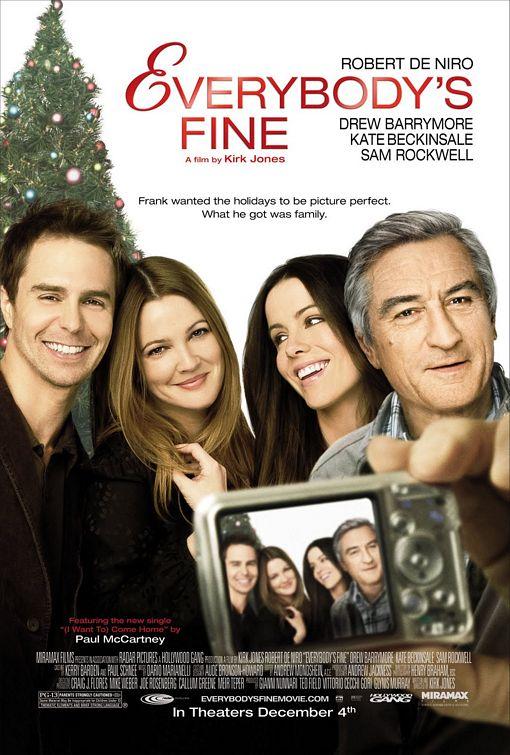Everybody's Fine is a journey of reconciliation
Mon, 02/08/2010
“Everybody’s Fine” starts out as a mediation on yard work. Frank Goode (Robert De Niro) is sprucing up his place in anticipation of a visit by his four grown children. This is a big deal to Frank. Retired and recently widowed, Frank has a lot of time on his hands and no one to share it with. But as the scene unfolds, the kids call one by one to bail on the visit. Frank is suddenly transformed into a cautionary tale of retirement’s perils: a lonely man with a tidy lawn.
Frank is also a stubborn guy and he decides that if the kids can’t come to him, he’ll hop on Amtrak and visit them.
“Everybody’s Fine” follows Frank’s journey, not just around the country, but into a long overdue understanding of what his children’s lives are really like and the unintended consequences of the way he raised them.
Director Kirk Jones gets lucky in casting Robert De Niro as Frank. De Niro has this uncanny talent for projecting a powerful personality through characters who stumble over their words. For us to believe this story, Frank has to feel like a force that shaped the lives of his children while at the same time failing to connect. Frank tramples on his conversations with his children with tightly held opinions about what is best for them. But De Niro also telegraphs the yearning behind those opinions: a love for his children that he can’t quite bring to the foreground.
As a result, the kids have grown adept at managing their dad. They weave their interactions with Frank around secrets and lies making sure dad sees only what he wants to see. When Frank shows up unannounced at their doorsteps, he’s greeted with cracks in the facades they have built for his benefit and the shards of truth rattle him.
Drew Barrymore, Sam Rockwell and Kate Beckinsale make a promising start as three of Frank’s kids (the fourth sibling has dropped out of sight and no one is willing to tell Frank what’s going on) but their characters never quite get the traction that De Niro does. The fault lies with the writing. Jones does double duty as both the director and the screenwriter. It’s a vanity he should have spared us; his writing is wispy a best.
Jones fails to realize that if we’re expected to follow along on Frank’s journey to finally connect with his children, the journey itself has to be compelling. Instead we do a lot of waiting: Waiting for a Greyhound bus to deposit Frank someplace, waiting for the vague clues his children drop to finally add up to something.
Along the way Frank does run into some very interesting character actors—Lynn Cohen (Miranda’s housekeeper, Magda, from “Sex and the City”) shows up as an obtuse old lady on the train and Melissa Leo (don’t you just cheer whenever she shows up in a film?) is a trucker who picks up Frank when he misses his bus—but they aren’t given the dialogue to create interesting characters. When you realize that the scenes aren’t going to amount to much you could almost cry because Jones has unwittingly replicated one aspect of travel: boredom.
Just when you’ve given up hope on “Everybody’s Fine,” Jones rallies for a strong finish. Frank discovers why his fourth child, David, has dropped out of sight and it pulls the rug out from under his assumptions about his family and himself as a father. His other children finally let Frank see the lives they have built for themselves—lives he would not have chosen for them, but fulfill them as adults. De Niro again drives the story with a subtle but emotional performance. He makes you feel Frank’s sorrow and joy as his expectations crumble and his family rebuilds itself on a new foundation.
“Everybody’s Fine” bookends a family’s journey towards reconciliation. It makes a promising start and ultimately finds it’s way to a rich, emotional ending. However, in the vast, empty spaces of the film’s center, you may wish that someone had provided you with a paperback book to help kill some time.
Everybody's Fine
Directed by Kirk Jones
Rated PG-13
(Two Stars)


